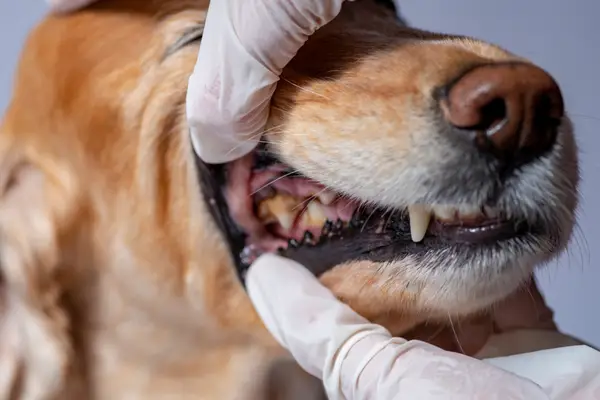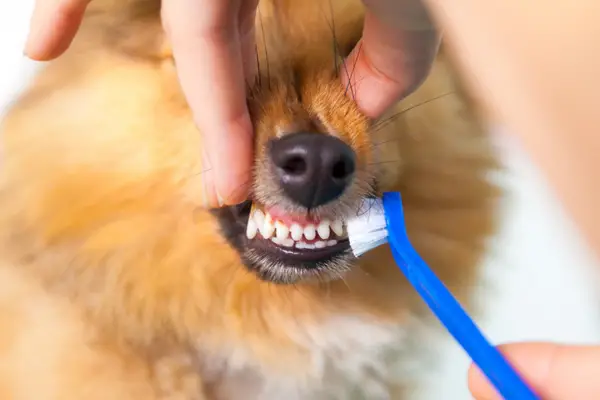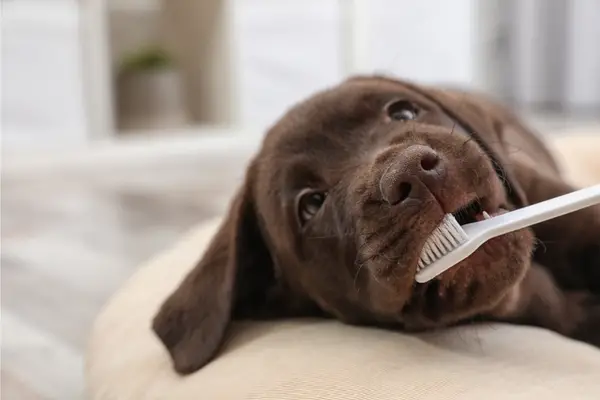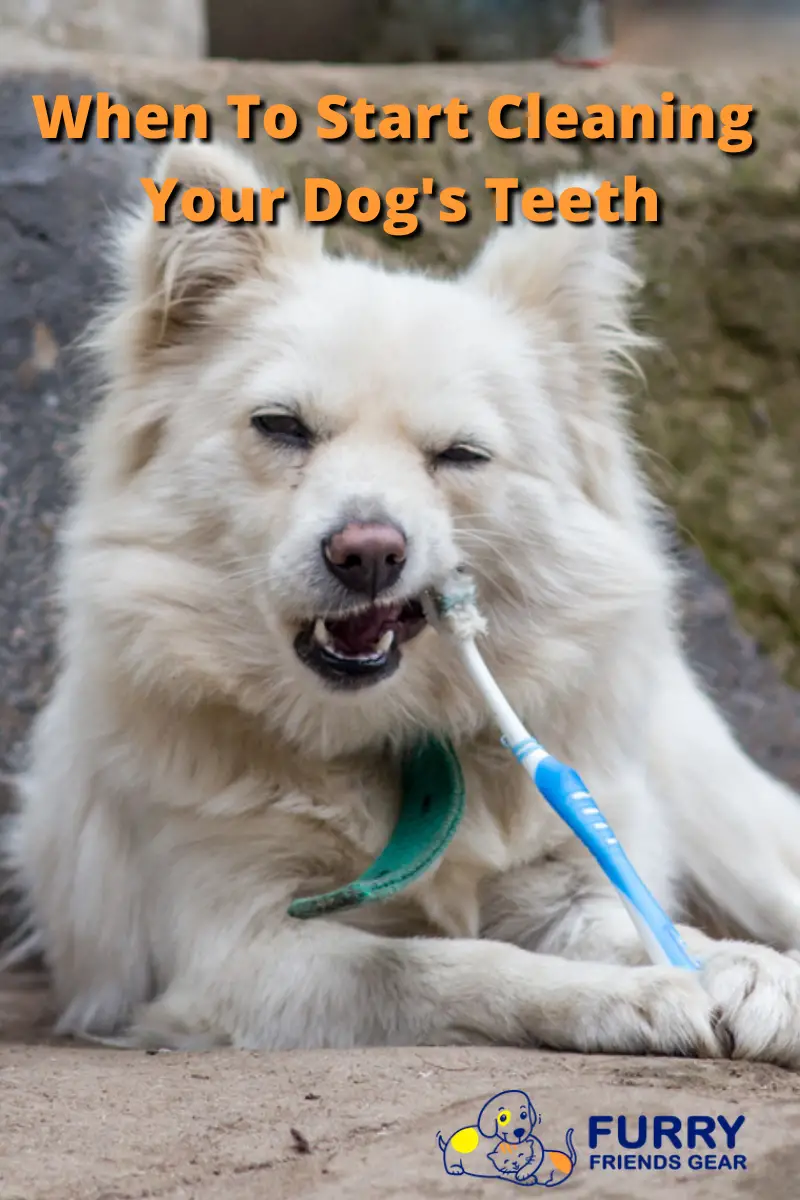One of the most crucial parts of keeping your dog healthy is oral hygiene. If you keep on ignoring it, there eventually comes a time when dental disease consumes your four-legged buddy and causes its health to deteriorate in no time. The lack of attention to oral hygiene leads to issues such as the buildup of plaque and gum disease. As an owner, you need to know when to start cleaning your dog’s teeth!
Many dog owners are unaware that dental disease is the second most common health problem in dogs, trailing behind ear infections. But unlike ear problems, dental issues are usually painful and unbearable. It’s just like how humans can endure a headache but can’t stand the pain caused by a toothache. Knowing and embracing the responsibility of cleaning your dog’s teeth will not only prevent pricey treatment costs but also keeps your dog healthy and well-groomed.
As a pet owner, you’ll recognize the immediacy of dental cleanings for your pup, but you can’t help but wonder what’s the right age to begin. You’ve seen some of your friends who religiously bring their dogs to the dentist or vet for scheduled cleanings, but you’re unsure when you should start. The truth is that there’s no standard or strict rule as it depends on each dog.
There’s a rule of thumb that says that large breeds don’t need to have their teeth cleaned until they’re almost adults, while small breeds, i.e., Chihuahuas and Yorkies must be subjected to dental cleanings while they’re young. The rationale is that small breeds usually have large teeth in proportion to their mouths, which means there’s a greater possibility of crowding and trapping bacteria from food.

Importance of Oral Hygiene
You know by now that oral hygiene is as critical for dogs as it is for us. Although there’s always the option of taking your pooch to the vet for scheduled dental cleanings, there’s no denying that the first base is brushing. If you don’t put in the effort to brush your pet’s teeth, it’ll promote the accumulation of bacteria and the buildup of plaque – both of which are contributory factors to gum disease and tooth loss. It’s best that you start brushing your puppy’s teeth early to prevent the possible pain and inconvenience of dental problems later. When to start cleaning your dog’s teeth is up to you, but the earlier the better.
There’s no exact rule when it comes to the right age, but it isn’t necessary when it hasn’t lost its puppy teeth. Hence, the best guess is about five to six months of age, at the time when the pet has gained its permanent adult teeth. After that, the sooner you can start the better. It makes sense to start early as it gives time for the young pup to get used to the routine.
Related article: Best Way To Clean Dog’s Teeth, Insider Pro Tips
Things You Need for Brushing
Brushing doesn’t require fancy tools – all you need is a toothbrush and toothpaste specifically made for dogs. When to start cleaning your dog’s teeth means learning about specialized toothpaste for pets that contain ingredients that are palatable and safe for your four-legged buddy. You never should use regular toothpaste for humans as it may contain ingredients harmful (even poisonous) to your dog. One common example is xylitol. Don’t worry because toothbrushes and toothpaste designed for dogs are readily available in pet stores and vet clinics.
When To Start Cleaning Your Dog’s Teeth: The First Time
Don’t be afraid or hesitant on your first try. The key is to start off as gently as possible. You don’t want your pup to have a frightening experience either, as it would make it feel wary of another session. You begin by putting your fingers on the pet’s mouth and rubbing them across the teeth. Allow the animal to sniff and check on the toothbrush; if possible, let it taste the toothpaste before putting the same into its mouth. It’s best that you give the dog a treat and maybe some belly rub once you’re done brushing. This generates a mindset in which it will associate brushing with a pleasant and rewarding experience.

Embracing a Routine
The way to succeed in maintaining good oral health for your dog through brushing is by embracing an effective routine. You want that routine to be convenient to you and your pup so that it won’t bother the animal. The last thing you want is for it to think that there’s no need for it. In a perfect world, you could brush your dog’s teeth daily, but that’s highly unlikely if you’re busy with other stuff like business or work. You also can’t maintain a daily brushing routine if you have more than a couple of pets at home. Well, it doesn’t have to be daily brushings – the key is to do it regularly by embracing a routine. A routine will help you when you start cleaning your dog’s teeth.
Regular Check-Ups
Aside from brushing, you probably already know that there are other ways to maintain your pup’s excellent oral health. One of them is by taking regular dental examinations. Like brushing and dental cleaning, you want to know when the right time is to start taking your pet for those scheduled check-ups. The answer is quite simple: as soon as possible. Once you’ve started visiting the dog dentist or vet, you’ll have to commit to a dental exam twice a year. Teeth cleaning may also be required once a year, depending on the condition of your dog’s teeth. Remember that bad breath in dogs is typically indicative of more severe issues like tooth decay and gum disease. Annual dental check-ups are the only way to figure this out.
Teeth Cleaning Toys
While regular brushing and professional dental cleaning are the ways to go to clean your dog’s teeth, it doesn’t mean that those are the only options. The reality is that regular brushing and frequent visits to a dog dentist can be quite inconvenient for a pet owner. Aside from the fact that brushing takes a ton of time and patience, dogs generally don’t like people touching their mouths. Well, the next best thing might just be the most convenient option in the practice of good oral hygiene. It comes in the form of teeth-cleaning toys.
There are hundreds of varieties of specially designed toys that help in cleaning the animal’s teeth. These toys are effective because they’re made to withstand the pressure of chewing and gnawing. Dog teeth cleaning toys are meant to be enjoyed by your four-legged buddy; in so doing, its mouth produces saliva, thereby washing away and preventing the buildup of plaque.
Dogs have different dietary needs. Some breeds are more prone to health issues than others. When it comes to maintaining healthy teeth, your dog’s diet has a crucial role to play. If you’re unsure about your pup’s specific needs for food and nutrition, it’s best to seek help from a local veterinarian. You’ll get an expert’s advice on the best diet for your dog.
When it comes to food, there’s evidence that opting for dry varieties will help in cleaning the teeth. The reason is that the pooch exerts added effort to chew on the dry kibble, which naturally removes debris, bacteria, and plaque building up in between the teeth.
Aside from the usual dry dog food, there also are consumable dental chews and treats that are specifically made to clean the dog’s teeth without any intrusion. It means that you just let the dog munch on the treats while cleaning its teeth naturally.
Related article: Best Dog Teeth Cleaning Toys, A Comprehensive 2022 List
How About Bones?
There’s an ongoing debate about the safety of feeding dogs with bones. Even when given raw, bones with some meat in them are certainly a tasty treat for the pup, plus its texture helps in cleaning the teeth. But the glaring problem is that bones are hazardous. The hard texture and sharp parts can cause punctures and fractures. When swallowed, bones can result in severe constipation.
Meanwhile, cooked bones are more dangerous to pets because they are more likely to fragment. When this happens, it might cause severe internal or organ damage. If possible, avoid feeding your dog with bones, either cooked or uncooked.
Teeth Cleaning Benefits of Edible Dog Chews
Like teeth cleaning toys, you may give your pup edible dog chews as soon as it develops its permanent teeth. As the name suggests, these are edible products that your pup can munch on until they’re fully consumed.
The difference between edible dog chews and traditional treats is that the former gives the pooch a harder and longer time to consume. Dog chews are made in a way that the pet enjoys gnawing action for an extended period, thereby effectively scraping the teeth, and stimulating the gums at the same time. As a result, any buildup of residue and food particles in between the teeth is prevented.
Edible dog chews come in different forms, shapes, and sizes. You can start giving your dog these treats once you feel like it is capable of gnawing action without injuring itself. Since these products help clean your dog’s teeth, you shouldn’t feel obligated to do daily brushing. The most popular types of dog chews are bully sticks, beef tendons, antler sheds, and dried beef trachea. Keep in mind that these chews offer at least five minutes of chewing, which is more than enough to break up trapped food particles in between teeth.
Non-Edible Variants
What makes non-edible dog chews and toys advantageous is the fact that they’re durable enough to last for months before you can see clear signs of deterioration. Like edible treats, dog chewing toys promote improved oral health as well as clean teeth.
They’re usually made from infused nylon-based materials that are virtually unbreakable. We call them versatile interactive toys because your dog gets a lot of fun out of them. So, if you have a pup with a highly destructive chewing habit, giving it non-edible dog teeth cleaning toy makes perfect sense.
One of the best things about dog teeth cleaning toys is that you can give them even to a young pup. Since it doesn’t have any sharp components and small fragments, the dog will be perfectly safe playing with it. However, be sure that you choose a toy that’s large enough for Fido to swallow and choke on. The only risk associated with these toys is the choking hazard. But if you get the right size, then that shouldn’t be that much of an issue.

Insist on Quality
Once you’ve decided to buy dog teeth cleaning the toy, the most critical thing to factor in is the quality of the product. Although there are literally thousands of toys to choose from, there’s no guarantee that all of them are made from safe and high-quality material. Any dental product meant for dogs to chew and gnaw on must be durable enough for it not to break into smaller fragments. On the other hand, you can’t choose something that’s too hard as it might cause a serious injury like a broken or chipped tooth.
Furthermore, be wary of the possibility of buying a dog tooth cleaning product that contains toxic materials. It’s hard to fathom, but some manufacturers don’t care about the well-being of our pets. They make products with profit as the foremost consideration. Sometimes, these companies use cheap materials which may contain lead, mercury, or any other chemical that could prove fatal when ingested.
Also, don’t let your dog play or munch on tennis balls. You probably have seen this trend once or twice on TV, but it’s not a sensible choice for dog teeth cleaning purposes. Tennis balls look fun, but the material from which the outer surface is made will wear down the dog’s tooth enamel, causing irreparable damage over time.
Be reminded that your dog’s safety and well-being must always be a priority. Don’t go cheap on your beloved four-legged buddy or you might regret it. So, paired with a healthy diet, regular brushing, and occasional visits to the vet for oral exams, you’ll have the best strategy to keep your dog’s oral health at the optimum level. Chew toys offer the convenience that you’ll never get from other methods; best of all, your dog loves them.

